NOTE: This is the first installment in a two-part series about Plan-B Theatre’s 24th season and a preview of Matthew Ivan Bennett’s ‘Radio Hour Episode Nine: Grimm.’
In certainly its most ambitious season during its 24-year history, Plan-B Theatre has programmed seven new plays by Utah playwrights that explore a vast territory of family values. By the end of the season, the verdict likely will suggest rather than advocating a single predominant model of social and moral norms we might all do better by encouraging behaviors and practices which we find to be just as prevalent in nontraditional families (which many social conservatives stigmatize and seek to ban) as in the much vaunted nuclear family models.


Especially in the last decade, Plan-B has cultivated a distinctive brand for compelling original work by Utah playwrights, one of the most significant developments in the flourishing creative waves of the Utah Enlightenment. A major platform for developing, refining and polishing new plays is The Lab, which has a current group of nine playwrights. “What has made it exciting for us is that it provides a safe space for the playwrights to bring forward their new work, even in its rawest first draft, in closed readings and to workshop the plays in the most collaborative and collegial ways possible, Jerry Rapier, Plan-B’s producing director, explains.
Six of the seven new plays (the exception being Matthew Ivan Bennett’s ‘A/Version of Events’) came through The Lab’s workshop process. Currently, The Lab is the site for 18 plays in progress, some of which are slated to be produced by companies elsewhere in Utah and outside the state. For this season, along with Matthew Ivan Bennett, Jenifer Nii, and Julie Jensen, well-known writers whose works already have been featured on the Plan-B stage, there will be the premiere of work by a new playwright who has appeared in Plan-B productions as an actor (Carleton Bluford), the first Plan-B staging of a play by Melissa Leilani Larson, a rapidly rising personality in the Utah arts and letters scene, and the work of Elaine Jarvik, a former journalist whose works have been staged by the Salt Lake Acting Company and Pymaglion Theatre.
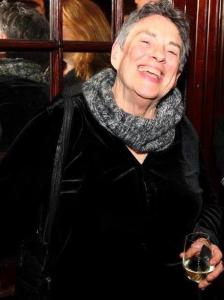

The 24th season also promises to be the company’s most unconventional in terms of its schedule. Plan-B only has scheduled for the fall the premiere of the ninth edition of Plan-B’s Radio Hour, done in conjunction with KUER-FM’s Radio West program. Matthew Ivan Bennett’s adaptation of a trio of Grimm Brothers’ fairy tales: ‘Rapunzel,’ ‘The Juniper Tree,’ and ‘Little Snow-White’ will make ideal Halloween fare. However, there also will be a free performance of Bennett’s ‘Different=Amazing,’ a 40-minute play that examines how children and others can learn to deal with bullying. The play, which has been presented to thousands of elementary school children in Salt Lake and Davis county school districts, will be performed Oct. 10 at 7:30 p.m. in Art Access (230 South, 500 West, #125). Rapier says a round of performances also have been scheduled for area schools. Read our review of Different=Amazing here.
Meanwhile, December, which normally has been among the company’s quietest months in the season, will see two major productions: A 10-day run of Julie Jensen’s newest play ‘Christmas With Misfits,’ a series of four vignettes that are a far cry from the homey, cliché-filled holiday programming one finds on cable during the season, and Elaine Jarvik’s ‘Marry Christmas,’ with four performances chronicling the stories of Utah same-sex couples on the first anniversary of the arrival of marriage equality in Utah.
While the remainder of the winter and the spring are packed with three full-run productions of new plays, Plan-B’s season, for the first time since 2002, will be the first without SLAM [the 24-hour writing competition] or ‘Banned’ [highlighting First Amendment censorship], according to Rapier.
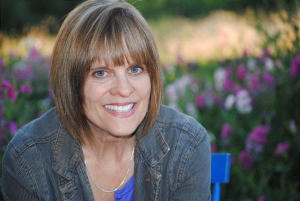

Plan-B’s exploration of family values opens on Oct. 15 with the return of one of the company’s most popular fixtures, the ninth edition of the Radio Hour series with Bennett’s adaptation of Grimm stories. The playwright, who now has penned five Radio Hour scripts, relied on older editions of the famed stories that situate them as darker journeys into the human experience, rather than as tales modified with sanitized, erroneous straightforward lessons intended for children’s audiences. “Fairies will toss your beloved out of a window and drown your ass,” Bennett explained recently in a Plan-B blog post. “Parents will put themselves first. Beauty is a virtue. Disobedient children die. Good children die (but are sometimes resurrected).” [See Part II for a more in-depth preview of ‘Radio Hour Episode 9: Grimm.’]
The key takeaway from both Christmas season productions – Jensen’s ‘Christmas with Misfits’ (December 11-21) and Jarvik’s ‘Marry Christmas’ (December 20-23) – is emphasizing that enlightened, progressive – even liberal individuals – do not reject values, norms, and standards but they are not interested in the values, norms and standards promulgated by those who see traditional family and marriage as settled ideas no longer open for debate.
While Jensen perhaps starts with the premise that she really abhors the holiday season, the four stories in her play are unexpectedly touching and realistic accounts of how awkward individuals even in the most awkward of circumstances find love, common ground, and even surprising new connections of friendship and relationships that make people forget the materialistic focus often associated with the holidays. One is about a seven-year-old girl who falls in love with an elf (played by a midget) who works at a Macy’s store display and brings him home. Another is about a couple of gay teens – a boy and a girl who describe themselves as geeks – and decide to give each other the gift of sex. The third, a look at the obsessive compulsion with holiday decorations, chronicles a man who joins women to sell holiday crafts at a bazaar along with his collection of plastic baby Jesus figurines, statues, and dolls numbering in the hundreds. The fourth story is about an elderly man and women at an assisted living center who despise the holiday and share tequila while reminiscing about the Beatles ‘Abbey Road.’
‘Marry Christmas,’ by Jarvik, a former journalist, will be performed as a staged reading featuring more than 30 character roles assumed by 14 actors, the largest cast ever assembled for a Plan-B production, according to Rapier. “This play is very personal to our company, as several members both in active theater and the board were married during the 17-day span when marriages could be performed legally,” he adds.
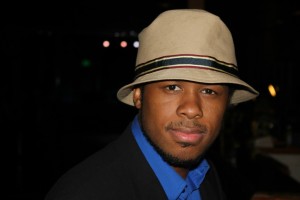
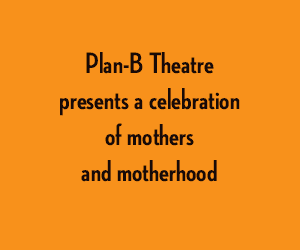
Jarvik has scripted out actual marriage stories for the production, which opens on the first anniversary of the arrival of marriage equality in Utah per the ruling in Kitchen v. Herbert. Four performances of the show, directed by Jason Bowcutt, will be offered with proceeds (tickets are $20 apiece) going to Restore Our Humanity, a grassroots advocacy group in Utah that has been leading the fight for marriage equality in the state. The first performance on Dec. 20 with take plan at noon, precisely at the first anniversary moment when the historic decision was announced.
A celebration of motherhood and the sacrifices made in the presence of maternal love drives the major winter production featuring the premiere of ‘Mama,’ (February 12-22) by Carleton Bluford based not only from his personal experiences but also on a series of Facebook posts that he curated from others who were asked to share their experiences as mothers or with their mothers.
Bluford’s premiere, his first professional production as a playwright, is notable for several reasons. It coincides with the commemoration of Black History Month and the Edward Lewis Black Theatre Festival. He is the first recipient of the award from The David Ross Fetzer Foundation for Emerging Artists, marking achievements by creative artists younger than 35.
Bluford has appeared in several major Plan-B productions. In 2010, he played Wallace Thurman in ‘Wallace,’ a play by Debora Threedy and Jenifer Nii. He also performed in Threedy’s 2012 work ‘The Third Crossing.’
Eleven days after his play’s production closes, Bluford will appear in the premiere of Bennett’s newest work, ‘A/Version of Events,’ (March 5-15) set almost entirely in a car as a young Mormon couple, who are grieving the death of their child, are traveling to Hershey’s Chocolate World in Pennsylvania. As the twelfth play from his body of work which has been produced since 2007 on the Plan-B stage, ‘A/Version of Events’ is, indeed, the most personal, building upon an arc of profoundly intimate connections in himself and in his relationships which have marked the earlier works of ‘Mesa Verde’ and ‘Eric(a).’

This latest work draws in part from his experiences when his parents lost a baby who died on Bennett’s 19th birthday. Bennett situates the work not just within the frame of grief but also in the broader context of love and marriage’s interlaced challenges. “When you marry, you vow to walk with another person “come weal, come woe,” but it’s a lot easier to vow than to do,” he wrote recently in a Plan-B blog post. “Can you think of a worse torture than watching your wife folded with sobbing and you powerless to stop it? Sometimes that’s exactly what “come woe” means: standing there, watching them choke and sputter.”
In many instances, the timing of Plan-B’s production is serendipitous and acutely relevant. That is the case with Larson’s ‘Pilot Program,’ (April 9-19) which is set in 2019 and revolves around a professional middle-aged Mormon couple with no children who have been called to participate in a program restoring polygamy. In late 2013, U.S. District Court Judge Clark Waddoups struck down part of Utah’s anti-polygamy law in Brown v. Buhman. The decision effectively removed the threat of arrest for plural marriage families in Utah, including the Brown family, which was featured on the television reality series ‘Sister Wives.’ Utah Attorney General Sean Reyes just filed an appeal to the decision late last month in the 10th U.S. Circuit Court of Appeals.
The play’s premise arises from a simple question posed by Larson: “What would it take for me to no longer be a Mormon?”
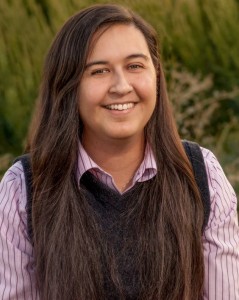
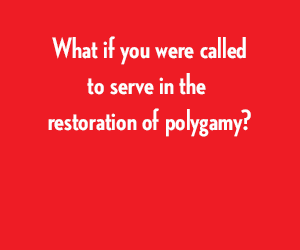
It demands, as Larson would suggest, a rigorous self-analysis that could challenge our individual life-long perceptions and ideals about what marriage should be. As Larson wrote in a recent Plan-B blog post, “As a lifelong Mormon, marriage is something that I’ve heard about for as long as I can remember. As a child and a teenager and even in religion classes in college, I was taught that marriage was the key to the kingdom. I’ve been told all my life that I would marry a good man and be happy with him for eternity. I’d be lying if I said I didn’t want to believe it.”
The final premiere is Jenifer Nii’s ‘Ruff!,’ a story about two dogs in a shelter tailored for elementary school audiences, which will be presented as part of a traveling show during the fall of 2015. However, a free, public performance of the play will be presented Aug. 31, with details to be announced at a later date.
For Nii, according to Rapier, the play is a kismet moment, combining the passions of writing plays and who recently switched careers from journalism to dog trainer. Nii has had three plays produced on the Plan-B stage, including ‘Wallace’ (written with Debora Threedy), a brilliant adaptation of Nathaniel Hawthorne’s ‘The Scarlet Letter,’ and ‘Suffrage,’ inspired by the brief period in the 19th century when Utah women enjoyed the right to vote. The latter two plays were nominated by the American Theatre Critics Association/Steinberg Award for ‘Best New American Play Produced Outside New York.’
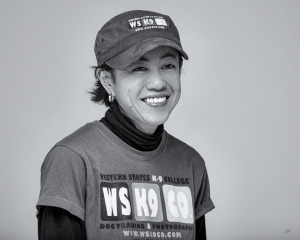

Nii wrote the play, emphasizing the special connection between animals and children, drawing upon the themes of how we learn to accept and appreciate each other through our differences and how we can overcome our basic fears, such as fear of dogs. The play also has an interactive element, as Intermountain Therapy Animals will have therapy dogs at all performances.
As varied as this new collection of seven plays might appear at first glance, one can see easily how each play coalesces around a fundamental acknowledgment. Rather than continuing our debates and discussions about family values as platforms to stigmatize each others’ beliefs in the most viscerally charged language as possible, wouldn’t it be better to start from the viewpoint that really what all of us are trying to do, as conscientious as possible in the sense of basic human decency and dignity, is really doing the right thing.
For more information about season and individual performance tickets, see here.

